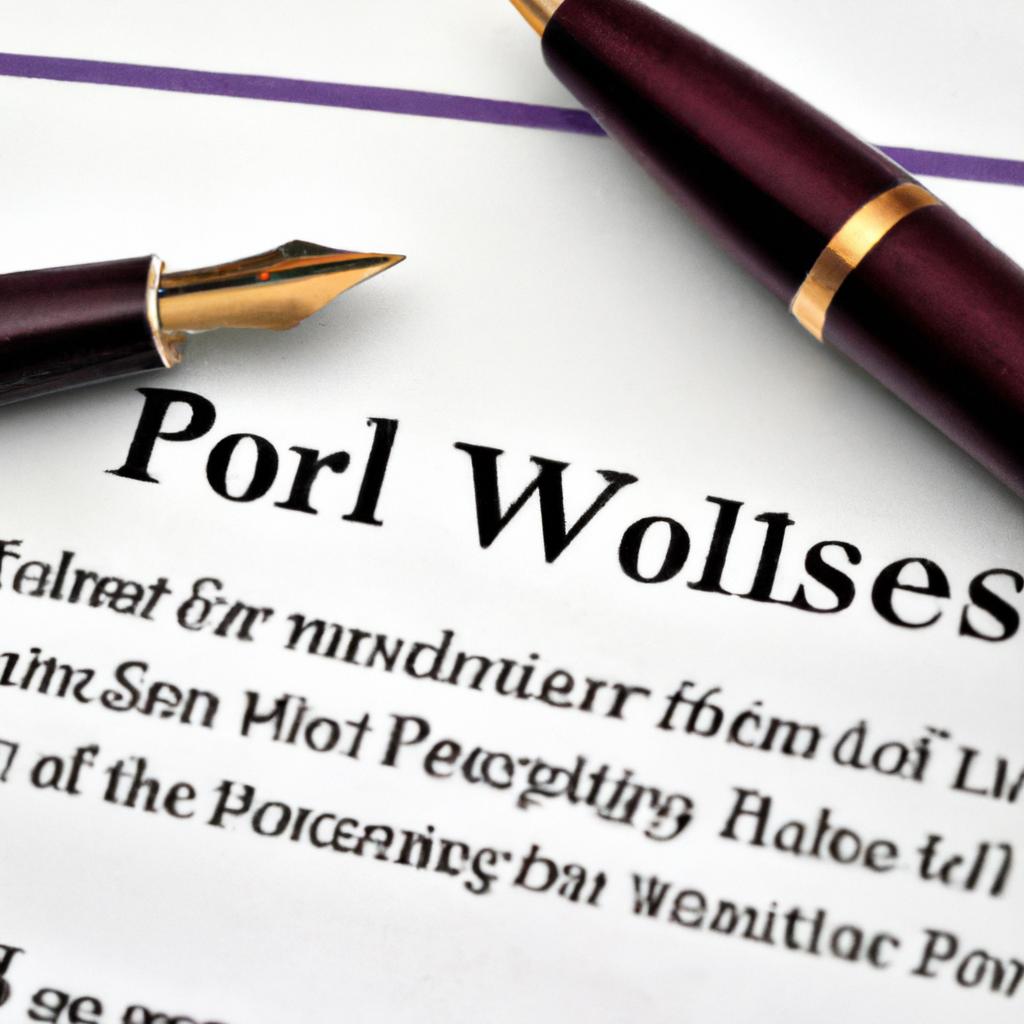As seasoned practitioners in the intricate realm of estate planning and probate law, we at Morgan Legal Group understand the importance of clarity and precision when it comes to matters of inheritance and will execution. In this article, we delve into the concept of a probated will, shedding light on its purpose, process, and significance in the realm of legal settlements. Join us as we unravel the complexities of probate and explore the essential components of a probated will.
Understanding the Purpose of Probated Wills
Probated wills play a crucial role in the legal realm, especially in matters concerning estate planning and distribution of assets. When an individual passes away, their will typically goes through a probate process to validate its authenticity and ensure that the deceased’s wishes are carried out accordingly. During this process, the court oversees the distribution of the deceased’s assets, payment of debts, and resolution of any disputes that may arise.
is essential for individuals looking to secure their assets and provide clear instructions for their loved ones after their passing. By creating a legally valid will and going through the probate process, individuals can ensure that their final wishes are respected and that their assets are distributed in the manner they intended. Probated wills also help to prevent confusion, disputes, and potential legal battles among beneficiaries, ultimately providing peace of mind for the testator and their family.

Key Differences Between Probated and Non-Probated Wills
Probated wills and non-probated wills are crucial components in estate planning that dictate how an individual’s assets will be distributed after their passing. Understanding the key differences between these two types of wills is essential for anyone looking to protect their assets and ensure their wishes are carried out.
Probated wills go through the legal process of probate, where a court validates the will and oversees the distribution of assets to beneficiaries. On the other hand, non-probated wills bypass the probate process altogether, providing a quicker and more cost-effective way to transfer assets to beneficiaries. While both types of wills serve the same purpose of outlining asset distribution, there are significant differences in how they are executed and the level of court involvement.

Navigating the Probate Process for a Will
Probate is the legal process through which a deceased person’s will is validated, and their assets are distributed to heirs and beneficiaries. This process involves the court overseeing the administration of the decedent’s estate, making sure debts are paid, and assets are distributed according to the terms of the will. Navigating the probate process can be complex and time-consuming, requiring the expertise of a knowledgeable probate attorney.
During probate, the following steps are typically involved:
- Filing the will with the probate court.
- Notifying heirs and beneficiaries.
- Inventorying and appraising assets.
- Paying debts and taxes.
- Distributing assets to beneficiaries.

Effective Strategies for Ensuring a Smooth Probate Process
In the world of estate planning and probate law, the term “probated will” refers to a legal process in which a deceased person’s will is presented to a court to determine its validity and authenticity. This process involves various steps and can be complex and time-consuming. It is crucial to understand the key aspects of probate to ensure a smooth and efficient process.
One effective strategy for ensuring a smooth probate process is to work with an experienced estate planning attorney who can guide you through the intricacies of probate law. Additionally, organizing all relevant documents and information beforehand can help expedite the process. Keeping clear records, communicating effectively with all parties involved, and staying on top of deadlines are also crucial factors in achieving a successful probate outcome.
Q&A
Q: What is a probated will?
A: A probated will is a legal document that has been officially recognized by a court as the final testament of a deceased individual.
Q: How does the probate process work?
A: During probate, the court will validate the will, appoint an executor to carry out the deceased’s wishes, pay off debts and taxes, and distribute assets to beneficiaries.
Q: Why is probate necessary?
A: Probate is necessary to ensure that the deceased’s assets are distributed according to their wishes and to protect the rights of creditors and beneficiaries.
Q: How long does the probate process typically take?
A: The length of the probate process can vary depending on the complexity of the estate and any disputes that may arise. It can take several months to a few years to complete.
Q: Are all wills required to go through probate?
A: Not all wills are required to go through probate. In some cases, assets may be distributed outside of probate through joint accounts, trusts, or beneficiary designations.
Q: Can probate be avoided?
A: Probate can potentially be avoided by creating a comprehensive estate plan that includes trusts, joint ownership of assets, and beneficiary designations.
Q: What are some common issues that can arise during probate?
A: Common issues that can arise during probate include challenges to the validity of the will, disputes among heirs, and difficulty locating or valuing assets.
Q: What happens if someone dies without a will?
A: If someone dies without a will, their estate will be distributed according to the laws of intestacy in their state, which may not align with their wishes.
Wrapping Up
In conclusion, understanding what a probated will is can help ensure that your final wishes are properly followed after you pass away. By going through the probate process, your estate can be settled and distributed in accordance with your wishes and state laws. While probate can be a complex and lengthy process, having a clear and legally sound will can help ease the burden on your loved ones during a difficult time. If you have any further questions about probate or estate planning, it is always best to consult with a legal professional for guidance. Remember, a well-crafted will can provide peace of mind for you and your family for years to come.

